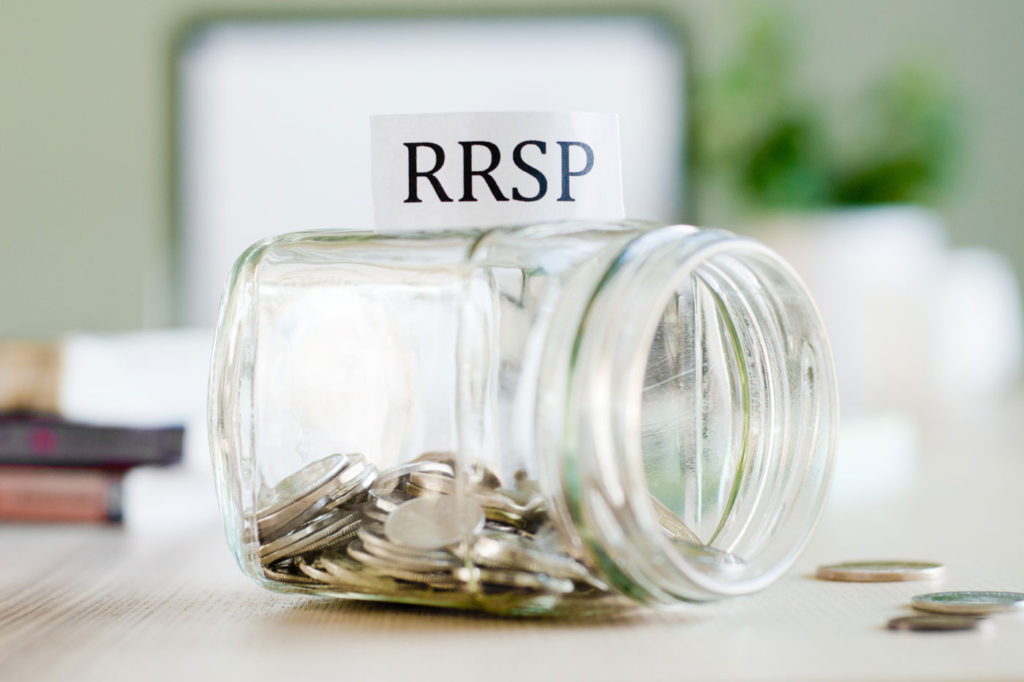
Let’s say you get a $2K bonus from your employer. You may be wondering what you should do with it to get the biggest bang for your buck. With the Registered Retirement Savings Plan (RRSP) contribution deadline coming up on March 1st, you may be wondering whether it’s better to pay down your mortgage or contribute to your RRSP. Like a lot of decisions in personal finance, it largely depends on your own financial situation. I write about this at length in my book, but to simplify things I’ve summarized it for you below.
Let’s take a look at three factors to consider when making this all-important decision:
1. Your Personal Tax Rate
Whether you’re paying down your mortgage or investing, it’s important to consider the tax implications of each. In both cases, you’re typically using after-tax dollars (dollars remaining after the tax people have taken their cut). For simplicity’s sake, let’s say your marginal tax rate is 30%. That means for every dollar of income that you earn, you’re left with 70 cents after paying your income tax.
Ok, simple enough. But when you contribute to your RRSP, you potentially get a tax deduction that corresponds to your marginal tax rate (30% in this case). The resulting tax refund is typically from the taxes that you’ve paid to the Canada Revenue Agency (CRA) that were deducted at source if you’re a salaried employee. The higher your tax bracket, the better the case is to contribute to your RRSP over paying down your mortgage.
2. Diversifying
If you’ve learned anything about investing over the years, it’s that it’s best not to put all your eggs in one basket. If you’re a homeowner who’s “house rich, cash poor” and you don’t have the luxury of a generous workplace pension plan, you might think twice about making extra payments on your mortgage over contributing to your RRSP.
The sad reality is when you do eventually retire, although your home may be worth a lot more, you may run into trouble accessing the equity because you no longer earn enough income. That’s why it can make sense to take a more balanced approach and contribute to your RRSP. Better yet, you could have your financial cake and eat it too by contributing to your RRSP and using the potential tax refund to pay down your mortgage.
3. Interest Rates
In July 2017, for the first time in seven years, interest rate increases were announced. Over the last year and a half, we’ve seen the Bank of Canada’s key interest rate rise by 1%. And it’s not just those with variable rate mortgages who are feeling the pinch. Government of Canada bond yields have been on the rise, causing fixed mortgage rates to creep up as well. If you locked your mortgage in at a lower rate and your mortgage is coming up for renewal, you could be in for a rude awakening.
If you have a sizable balance on your mortgage, it can make sense to pay it down more aggressively. Interest rates won’t be this low forever. If you’re years away from paying down your mortgage and you believe that interest rates will go higher in the future, you might as well take advantage of today’s low rates and make extra payments. (You might also consider locking in your mortgage if you’ve got a variable rate mortgage.) Not only will currently making additional payments save you interest in the here and the now, it’ll also save you interest in the future if interest rates keep climbing.
Still not sure whether you should be paying down your mortgage or contributing to your RRSP? Sun Life Financial has this handy RRSP vs mortgage calculator to help make your decision easier. The calculator is super simple to use. In about a minute you can find out whether it makes more sense to focus on your mortgage, contribute to your RRSP or both.
Note: This is a sponsored post by Sun Life Assurance Company of Canada, but was written and edited by me.
Sean Cooper is the bestselling author of the book, Burn Your Mortgage: The Simple, Powerful Path to Financial Freedom for Canadians, available now on Amazon and at Chapters, Indigo and major bookstores, and as an Audiobook on Amazon, Audible and iTunes.